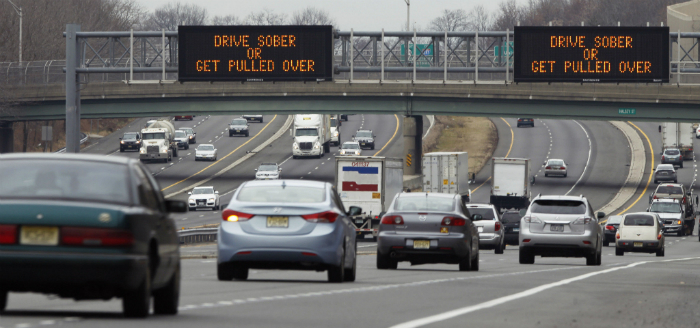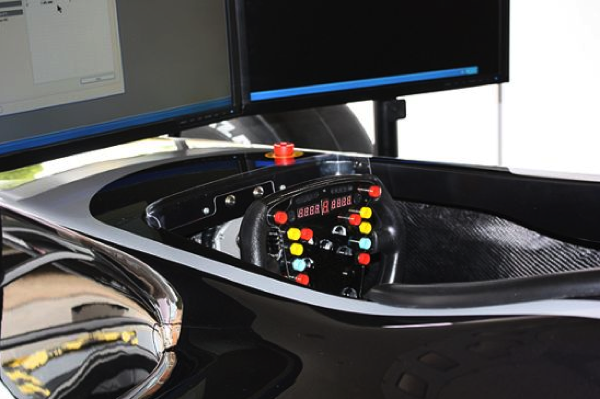Five seconds
Five seconds isn’t a lot of time in the grand scheme of things. We microwave our leftovers for longer than five seconds. It takes more time than five seconds to melt an ice cube or butter, most faucets don’t run hot water in less than five seconds, and almost everything we do in our daily lives takes longer. However, studies have shown that five seconds could mean the difference between life and death on the roads, as it is said that the average person guilty of texting and driving has only taken their eyes off the road for five seconds.
If you’re in a car traveling at 55MPH, imagine closing your eyes for five seconds; there would be bedlam, so why do we think it’s okay to look at our phone screens? We have a responsibility to train future generations on the safest ways to navigate highways and roadways, but are we actually fulfilling that responsibility or are we making things worse? All the parenting and guides preach that children learn by example, so are we educating correctly? Are we doing enough to protect them and train them that nothing is important enough to divert our attention from the road, even if it is just for five seconds?
The automatic, knee-jerk answer to this question is no, we’re not. When kids, especially teenagers are in the car, they’re watching our every move. Whether it is an intent to learn the rules of the road or simply just take in the surroundings, they’re watching. Are we setting the right examples? Sure, we’ve all done it; checked our phone, looked down to answer a call, or fiddled with the radio, but unfortunately, that doesn’t make it right. It is not what we should be teaching the next generation of drivers.
There are some people that will make the argument for knee-driving, but even in that case, the driver’s eyes aren’t on the road. Considering the five second argument, driving the posted speed limit on a highway, we have the potential to travel the length of a football field in five seconds. That’s a terrifying comparison considering that most people would be unwilling to drive that length blindfolded even in a closed-course setting, yet we see it and experience it all the time. How many times have you been a party to a traffic blight only to discover that the person who almost sideswiped us was on their phone?
According to a Raleigh car dealership, numbers surrounding texting and driving are heartbreaking. According to recent statistics, drivers are 23 times more likely to get into an accident at the hands of cell phone usage, and almost twenty per cent of distraction related accidents are the fault of cell phones. Considering one accident in a vehicle can change your life or the life of someone else forever, why are we still willing to take the risk? Is the text message from our best friend about tonight’s plans really too important to wait until we make it to our destination?
If you’ve ever been in the car with someone texting while driving, it can be a harrowing experience, especially if that person has almost rear-ended someone as a result of a text. It’s somewhat disheartening that we’ve made strident efforts to reduce the risks associated with driving in almost every other instance, except when it comes to texting and driving. We’ve streamlined navigation systems, car stereos have mostly gone hands free, and we’ve even made it possible to answer our phones without taking our hands off the wheel, but still we text and drive.
Since text messages became the medium by which most people communicate, we’ve been ardent in our efforts to avoid accidents caused by texting. We’ve plastered our highways with billboards, the TV has been flooded with commercials featuring bereaved people whose relatives’ lives have been taken by someone texting on the roads, and even the police are cracking down on those willing to take the risk. So why is it that we still think it okay to answer a text message from our dad on the way home from the grocery store? In the days before cell-phone usage was at an all-time high, we could wait to hear a message until we walked through the door, so this begs the question; are we really that much more important now or have we just become obsessed with the idea of instant gratification?
It’s a dangerous principle to consider in either direction. Either we’ve become so self-involved that we believe ourselves to be invincible or we’ve become so accustomed to everything being right at the touch of a button that we no longer are able to put our phones down until we are safely off the road. We managed to survive on this planet for a long time before cell phones were invented, and we will continue to survive long after something better is invented, but the key principle of that scenario is that we actually survive. Put down the phones; no text is worth your life.





![Driving with Google glass 5 Driving with Google Glass [Infographic]](https://www.techi.com/wp-content/uploads/2013/05/google-glass-650.png)




